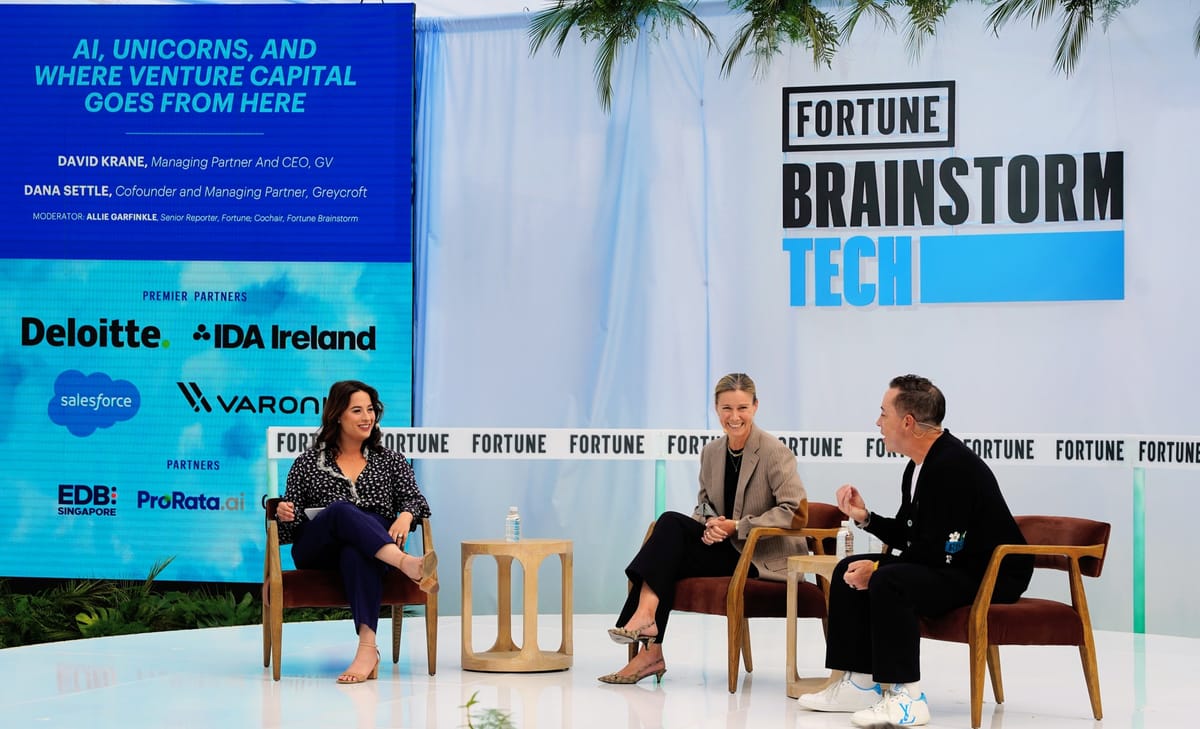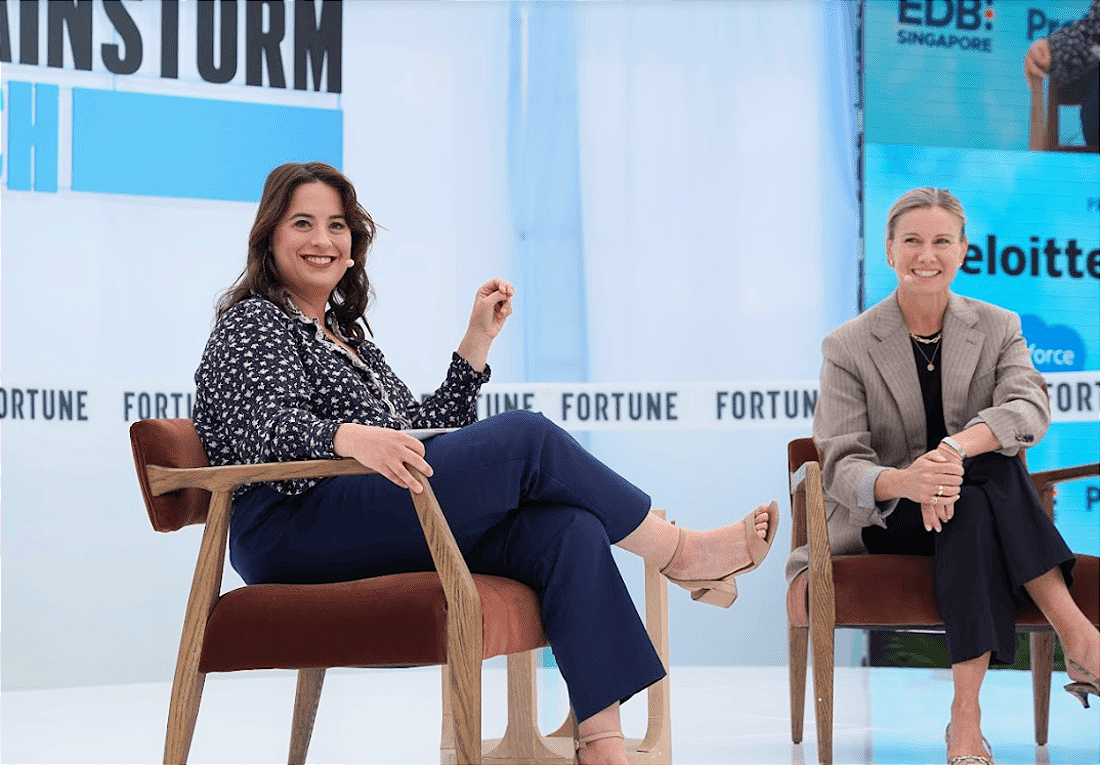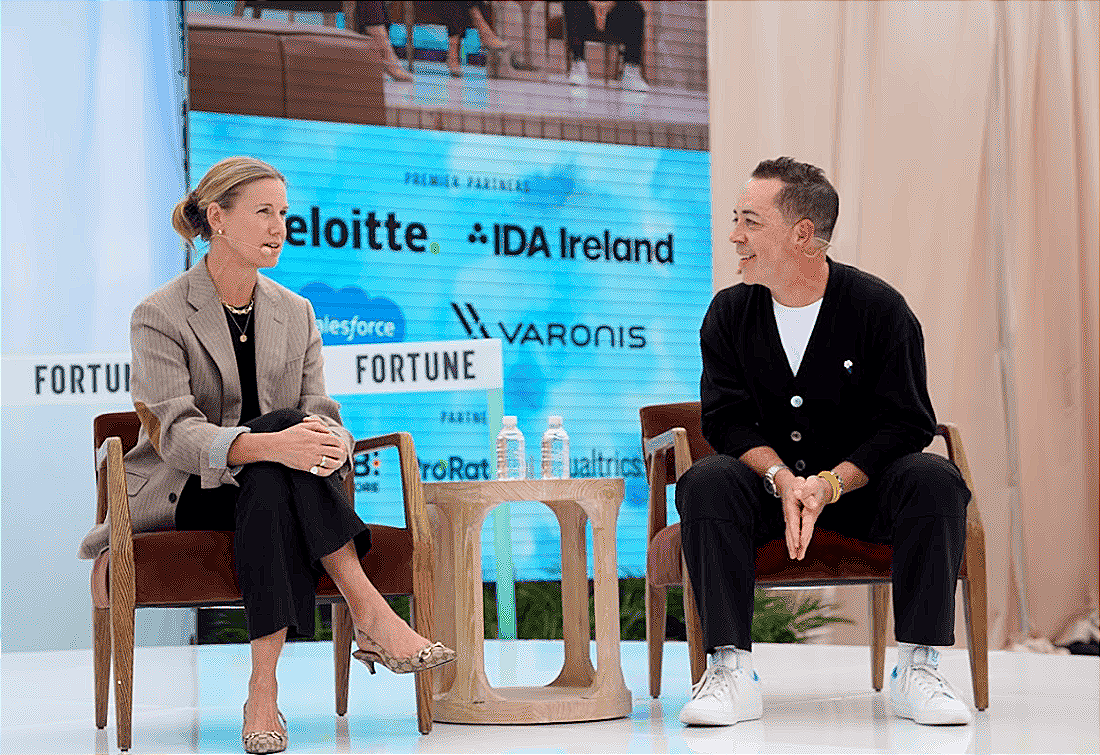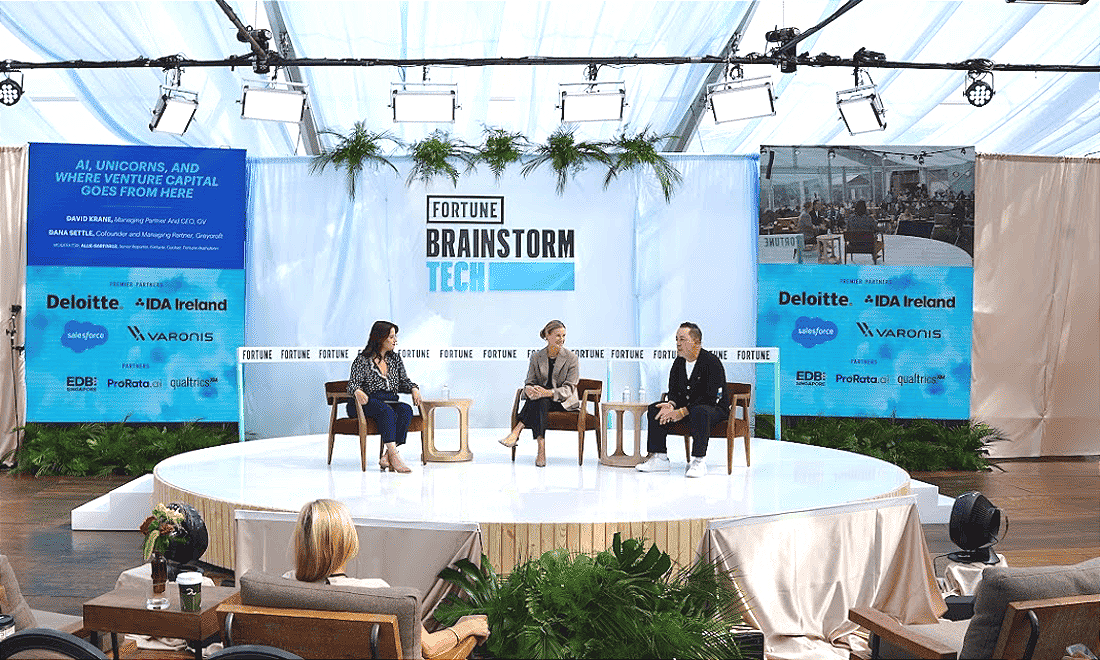

Above Park City at Utah’s iconic Montage Deer Valley, Fortune’s Brainstorm Tech 2025 brought together hundreds of tech executives and investors from across the country for a lively discussion about venture capital, AI, and the unprecedented speed of AI innovation shaping today’s startup landscape. Moderated by Allie Garfinkle, senior finance reporter for Fortune covering venture capital and startups, the session featured Dana Settle, LA-based Co-Founder and Managing Partner of Greycroft, and David Krane, Bay Area-based CEO of GV, the venture arm of Alphabet.
Too Much Capital? Maybe Not Enough Wisdom
Garfinkle opened with a provocative statistic: VC firms have nearly doubled in five years, from 1,900 in 2019 to 3,500 in 2024. “Is there too much venture capital?” she asked.
Krane didn’t flinch. “There is a lot of venture capital. But I’m an optimist. Entrepreneurs today have choices, opportunities, and backing that no previous generation ever had.”
Settle agreed — but with a caveat. “It’s not just about too much capital; it’s about where it’s going. Half of all venture dollars this year went to three companies. The rest? Spread thinly across thousands of startups.”
While the influx of capital has fueled innovation and supported numerous startups, it also brings up concerns about market saturation and the efficient allocation of resources. Perhaps the challenge lies in ensuring that the increased number of firms can effectively identify and nurture high-potential startups without contributing to an oversupply that could dilute returns and impact the quality of investments.

AI at “Formula One Speeds”
Turning to AI, Krane offered a vivid metaphor for the current market: “We’re at the third pitch, top of the second inning — but at Formula One speeds. We’ve never played baseball like this before.”
Settle added: “It feels like the AOL days, but moving faster. This is the very beginning, and yet, the pace is relentless.”
The panelists painted a stark picture of today’s AI investment landscape: some companies enjoy a relentless spigot of funding, while others, particularly at the application layer, face intense scrutiny. “It’s a have and have-not situation,” Settle said.
"If you're one of three companies that's having money being thrown at you, it's constant. It's a spigot that's constantly on."
From Garage Startups to Billion-Dollar Teams in Minutes
Both VCs agreed that AI is enabling a renaissance of small, agile teams. Krane, an early employee at Google, recalled early Google teams solving narrowly defined problems with just two or three people — a model now repeating itself in AI. “Young, first-time teams are launching billion-dollar companies in minutes, not months or years,” he said.

Settle echoed the sentiment. “Being a VC today is like being a kid in a candy shop. AI, quantum computing, genomics, blockchain — wave upon wave of opportunities, all solving real, hard problems.”
Sector Surprises: Healthcare, Legal, and Manufacturing
While AI is often hyped in consumer apps, the panel emphasized sectors that have historically lagged in tech adoption:
- Healthcare: Open Evidence is now used by nearly 50% of licensed U.S. physicians multiple times a day.
- Legal: Harvey reached $100 million ARR faster than almost any company in history.
- Manufacturing & Defense: AI is accelerating industrial innovation, helping rebuild U.S.-based manufacturing.
“Slow adopters are adopting AI very quickly, and the reason for that is real business problems," Settle explained. "In the healthcare industry, there are massive shortages of nurses and physicians; you just can't manufacture them overnight. That's where AI plays a real role. We're seeing adoption by health systems and doctors at a rate we've never seen before."

The Human-AI Equation
The discussion also explored what uniquely human skills will remain essential as AI takes on more decision-making roles. Krane emphasized ongoing exploration: “We’re trying to define what humans can do into perpetuity and what AI should assist or take over.”
Settle added that prompt engineering and fluency with AI tools are just the beginning. “When AI is as common as a toothbrush, we’ll finally see how humans and machines can uniquely complement each other.”

A New Generation of Entrepreneurs
A recurring theme was the generational shift in opportunity. Students and young professionals are questioning traditional education paths.
Krane brought up a cost-benefit analysis playing out across campuses and dinner tables throughout the nation: “My college-aged son spent his entire summer working in AI, working with large models, and coding assistants. His peers at Ivy League schools are wrestling with exactly this tension: Do I leave now? Do I feed this burning fire inside of me? Is this education worth it? Do I want to take on additional debt? Can I go build... because there are certainly people that will back me."
Settle highlighted the proliferation of self-taught coders and AI-native founders: “It’s accessible to everyone now. If you have an idea and initiative, you can start building today.”
Ethics in a High-Stakes World
When asked about high-consequence AI and defense technology, Krane acknowledged the tension. “There’s responsibility, ethics, and hard decisions. The pace is so fast that sometimes these questions are under stress, but we are aligned on being careful and deliberate in our funding choices.”

The Mic-Drop Prediction
Garfinkle ended with a one-sentence challenge: will we ever see a trillion-dollar startup? Both VCs answered, without hesitation: “Yes. Within three years.”
The panel left Brainstorm Tech attendees with an unmistakable sense: venture capital isn’t just abundant; it’s accelerating innovation at dizzying speed. AI isn’t just a tool — it’s a force reshaping industries, enabling small teams to scale like never before, and challenging the very notion of how and where humans contribute value.


